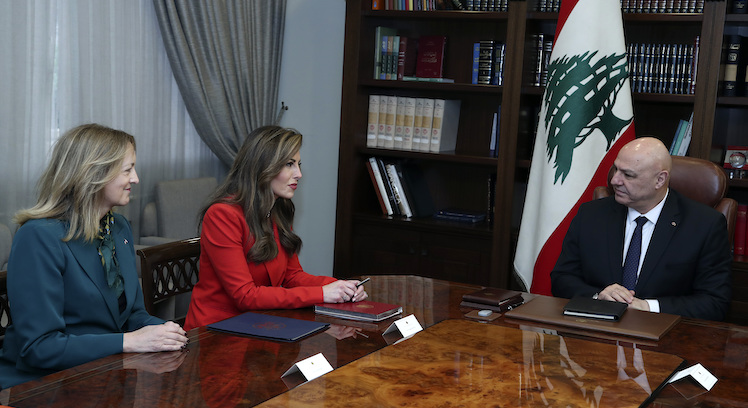Aside from the actual peace agreements of course, the most important legacy of the Abraham Accords was the normalization of normalization agreements between Arab states and Israel. The United Arab Emirates and Bahrain were first into the pool, with Morocco and Sudan to follow.
The UAE and Bahrain were significant because they represented the assent of Saudi Arabia, and thus the first public steps down the road to Israel-Saudi normalization. Sudan held symbolic importance because it was the site of the Arab League’s infamous Khartoum Resolution: After the 1967 war, in response to Israel’s attempt to negotiate the return of the land it won to the Arab states, the League passed a resolution affirming that there would be “no peace with Israel, no recognition of Israel, no negotiations with it.”
This rejectionist position stands among the clearest, most definitive declarations that the Arab world did not want anything less than all the land and all the Jews off of it. Sudanese recognition of Israel in 2020, then, was a meaningful gesture.
As was the addition of Morocco, once home to a massive Jewish community; in 2023, Israeli Knesset Speaker Amir Ohana, the son of two Moroccan Jewish immigrants, received a warm official welcome in Rabat.
The run of normalization agreements were an acknowledgement that Israel and increasing parts of the Arab world share the same reality: Their maps of the world actually match now, ending a bizarre parallel existence.
The agreements also normalized the idea that normalization could be part of future Israeli-Arab agreements and maybe even the goal of negotiations. Israel has a peace treaty with Egypt and one with Jordan and now mutual recognition with several other states, suggesting that one day it might be considered abnormal to not have normalization between an Arab state and Israel. Could normalization become the new norm?
It’s a good sign that, depending on who you ask, the idea of normalization is on the table between Israel and Lebanon. There have always been factions in Lebanon who support diplomatic relations with Israel. But the rejectionists had the backing of imperial Tehran and its Syrian satrapy. So the rejectionists always won.
For a time it seemed as though the window for normalization had passed, in part because it was starting to look like Lebanon’s time as a country had passed. Its borders with Syria were blurred, its capital was controlled from Iran, and its parliament was colonized by Hezbollah.
Now that Israel has substantially weakened Hezbollah, Lebanon has a chance to make its own decisions. The election of Joseph Aoun as its new president was a further blow to Hezbollah. Israel is treading carefully, having released Lebanese prisoners as a goodwill gesture and asking nothing in return. Aoun will use that gesture to argue to the Lebanese public that it would be beneficial to the country to improve relations with Israel.
The Lebanese deny that normalization is on the table, of course. Recognition of Israel is never on the table until it is close enough to avoid being sabotaged by rejectionists.
But Lebanon can’t avoid negotiations with Israel, so the only question is what they are negotiating. Israel and Lebanon have been working on a maritime boundary and now share the daunting task of keeping Hezbollah from rebuilding its ministate in South Lebanon, for example.
Normalization isn’t yet near. But that’s the funny thing about normalization: It exists before it is formally brought into being. Talking about normalization is a kind of normalization all its own. After that, it’s only a matter of time.


















